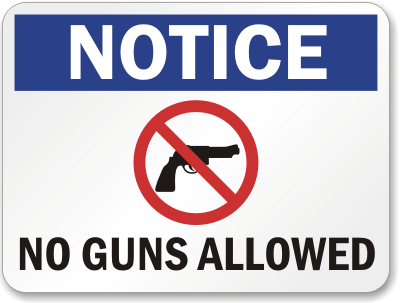
I keep hearing from people who think, in the aftermath of the Newton school massacre, that we ought to arm teachers and school administrators. It doesn’t sound like a good idea to me, for several reasons.
First, I’m the son of two teachers, my brother’s been a professor, and I have a sister-in-law and brother-in-law who still teach in elementary schools. None of them is proficient with a gun and, to my knowledge, none of them as any interest in becoming proficient with a gun. They got into the teaching profession to help children learn, not to be their armed bodyguards. In a room with an armed madman, they’d be nothing more than a target, at best, like the vast majority of men and women who spend their days in America’s classrooms.
Second, much of this talk comes from what I call Dirty Harry Syndrome. While some pundits love to blame violent movies and TV and video games for negatively influencing people to become sadistic psychopaths — a theory that has never been back up by evidence — I believe those elements of pop culture have another side effect. They make people think that, if they had a gun in their hand, they could always stop the bad guy with one shot. Because they’d be the hero, and the hero never dies in Hollywood. Even if wounded, they never fail to get the enemy because they’re always a better shot. Those who believe they’d be that hero have ignored all the stories about police officers (who have been trained to use firearms and spent hours on shooting ranges practicing) getting into a shootout and not getting the bad guy on the first shot, or being killed in the line of fire. Bottom line: the good guy doesn’t always take out the bad guy with a single magic bullet, or even several rounds.
Third, and most importantly, let’s imagine that teachers and administrators were armed in school. And that they kept their guns locked in a drawer so no student could stumble upon (or break in and steal) a loaded pistol. And that the teacher could get access to that drawer in a hurry and retrieve the gun very quickly (remember, it only took Adam Lanza 10 minutes to create the carnage at Sandy Hook Elementary School). And that the teacher is not just a popular and excellent educator, but also has experience with a weapon. Assume all of that. Now imagine that one of the bullets from that gun doesn’t end up in the bad guy, or the wall, or the blackboard, but in the head or chest of a kid — a little six-year-old first grader, or a big sixteen-year-old sophomore — who dies from the injury.
How’s that going to go? Do you think the parents of that school community will rally around that great teacher and praise them for a heroic effort, or demand that they’re removed from the classroom, ending their career? Do you think those parents will still want other teachers and administrators armed? Do you think you could convince them that sacrificing their child was worth it? Even if the bad guy might have killed the kid, it’s so much worse if the fatal round came from the educator’s gun — the paradigm would be immediately shifted in the other direction. And what guarantee is there that the armed teacher won’t go nuts for some reason and use that concealed weapon of mass destruction?
My daughter’s out of public school now and studying in a major urban university, but I didn’t worry then (and I don’t worry now) about her safety in the classroom, because I know that the overwhelming majority of American educational institutions are safe places for our children, despite rare events like Newtown, Columbine, and Virginia Tech. And they will remain so, even if no teacher is armed.
